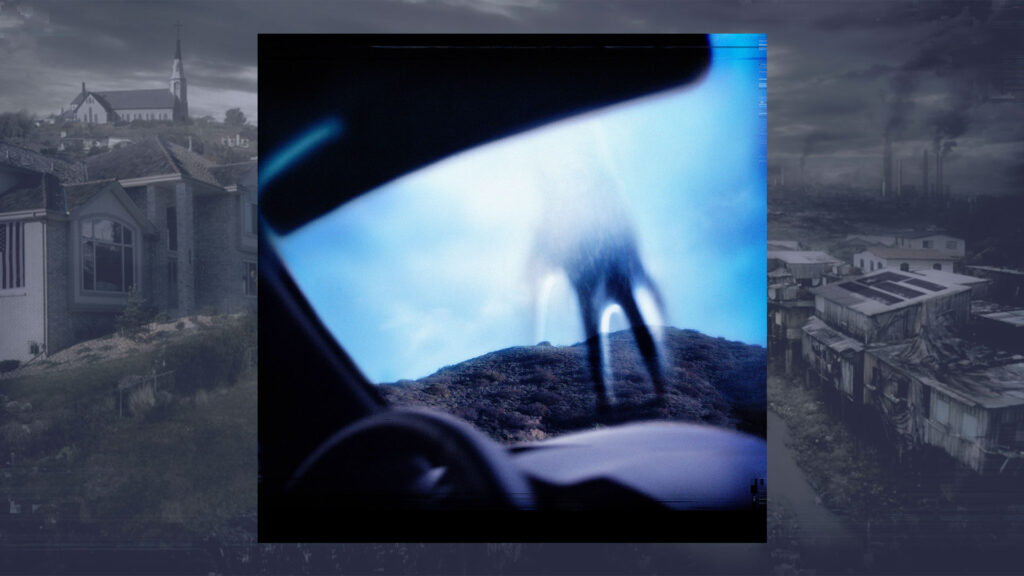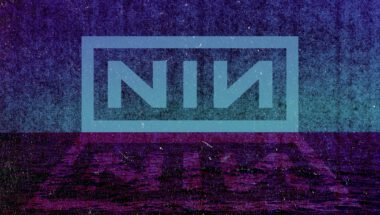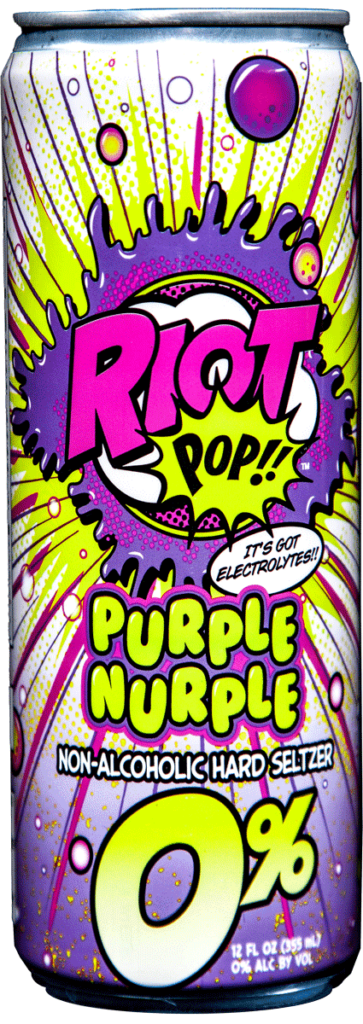Sometime in the mid ’00s, Trent Reznor saw the writing on the wall. It didn’t spell out anything good.
In 2000, human sock puppet George W. Bush was essentially installed as President by the Supreme Court after losing the popular vote. He was re-elected in 2004, coasting on a post-9/11 wave of jingoism, racism, and xenophobia (the Democrats didn’t help by having John Kerry, a centrist goon with the charisma of supermarket whole wheat bread, run against him, but that’s another story). That administration lied its way into two wars, encouraged the world to turn a blind eye as their military tortured detainees, and introduced the Patriot Act to further surveil citizens and quash dissent. Americans who questioned any of this faced rallying cries of “freedom isn’t free” and a wall of country singers promising a boot up their ass.
It was under these ominous shadows that Reznor developed Year Zero, Nine Inch Nails’ 2007 dystopian sci-fi concept album and alternate reality game that turned 15 this year. The album, the first that Reznor had composed largely on his laptop, is a claustrophobic din which is nearly subsumed in its own glitchy, squelching overload. Even so, it also slaps, marrying some of Reznor’s most indelible melodies to some of his most alienated production work.
Perhaps most notable, though, is that the album and game’s storyline ventured to predict where the societal slippage of the Bush era might lead by 2022. Here’s what it got right—and what it missed—15 years on.
The Year Zero Story
The title Year Zero comes from the notion that, after 15 years of traumatic terrorist attacks, the United States in 2022 would start again from scratch as a totalitarian fundamentalist Christian theocacy; 2022 marked the first year of a “new dawn”. An organization called the Bureau of Morality has cracked down on civil rights and grassroots dissent. The water is spiked with Parepin, a psychoactive substance whose use is justified as an anti-bioterrorism measure, but which makes its consumers sick and docile.
Meanwhile, eyewitness reports of The Presence, a giant “Hand of God” in the sky which brings about emotional, epiphanic experiences in its witnesses, are on the rise. Some characters claim this is a hallucination brought on by Parepin or another drug called Opal, but there’s ample reason to believe otherwise.
Not all citizens have rolled over. Those who resist the Bureau of Morality and its attacks on civil liberties find themselves in quasi-militaristic survival mode, with a rallying cry of “Art is Resistance.”
The Year Zero game, conceived by Reznor and produced in collaboration with 42 Entertainment, was basically an alternate reality mystery game. In early 2007, followers were led to a series of clues both online and off, mostly planted at or near Nine Inch Nails shows. These clues would range in form from flash drives to murals, from websites to recordings of screeching static which had to be translated via spectrogram analysis.
The week of the album’s release, the game reached its denouement with an “Art is Resistance meeting” in Los Angeles. Kits were handed out to those attending with buttons, posters, stencils, bandannas, and in around 25 cases, prepaid cell phones on which participants would receive in-game phone calls. Attendees were rewarded for their presence by a secret Nine Inch Nails show, which was then interrupted by a fake SWAT Team as part of the game’s real-life component.
More than just a convoluted (yet ingenious) marketing ploy, the game served to expand Year Zero into a complex multimedia world. It forged an elaborate environment to help relate the album’s tale of a terrifying, neo-Orwellian 2022, its elements presented as transmissions from the future sent back to 2007 as a warning.
The Future Becomes Present: What Year Zero Got Right
Well, it’s 2022 now, and as tends to happen with science fiction, most of the specific details of Year Zero have not come to pass. Still, they do seem less and less far-fetched. The increasing surveillance, pervasive encroachment on civil liberties, widespread desensitization to increasingly grotesque violence, and uptick in worldwide bioterrorism are all real, with worse surely on the horizon.
Edward Snowden’s leaks came about six years after the release of Year Zero, giving greater weight than ever to Reznor’s concerns about government surveillance; in fact, it appears to run deeper than Reznor could have dreamed. Of course, some of this may be the result of lazy engineering, more Idiocracy than 1984: it’s hard to imagine what use the NSA has for pictures of our cats, or the knowledge that we went to Dairy Queen five times last month (though it’s easier to understand how Dairy Queen or its competitors might use that info). Still, the sheer volume of monitored information that we’d previously been able to pretend was private remains staggering.
Even more alarming is how much of that surveillance has come with our own explicit permission. Who among us (save a few Luddites, but they aren’t reading this, right?) hasn’t entered into an agreement involving our thumbprint, facial recognition, background location tracking, etc. without actually reading the agreement? Everyone knows that this is by design, of course, but as recent concerns regarding period cycle tracking apps being used against pregnant people in a post-Roe world remind us, it can make for dire consequences down the road, whether via the federal government or a vigilante at the Texas border.
Speaking of which: while the Bureau of Morality doesn’t exist by name (yet), right wing fundamentalist dogma has certainly burrowed its ugly-ass toe ever deeper into the mainstream, bringing us several wide steps closer to Year Zero‘s theocracy. In 2022, extremist creeps steer the Republican party, and purportedly “moderate” conservatives have given up trying to brush them aside as they might have a generation ago. Instead, they either lend a hand or look away as the Overton Window is smashed through like the windows at the Capitol Building. Roe v. Wade appears to be on its way out; with that, marriage equality, voting rights for BIPOC, and all kinds of trans rights won’t be far behind.
…But Not Quite: What Year Zero Got Wrong
What’s equally interesting, though, is what Year Zero doesn’t quite nail (yes, pun fully intended… sorry). The obvious missing piece? No worldwide pandemic. Given the several near-misses the United States has faced with pandemics leading up to COVID-19, you’d think some kind of plague would have been a shoo-in.
Also, the antagonist in Year Zero is the United States government, which is hardly beyond the pale, and it’s far from the first work of science fiction to go that route. Yet it’s become increasingly clear in the last 15 years that private tech mega-corporations are likely to pose an even greater threat to civil liberties, as they lack even the nominal public oversight of the federal government. There are also no substantial allusions on Year Zero to online communication overload or algorithm-driven societal division; if anything, the internet of Year Zero is still presented somewhat as a bastion of hope and freedom, as it was so often viewed in the early days of the information superhighway.
Year Zero also doesn’t foresee our downward spiral (again, pun intended) of political discourse, which would lead to the American public not only allowing a would-be tyrant to push us closer to ego-driven neofascism, but to roughly half of that public wanting that tyrant back by any means necessary. Reznor failed to predict that masses of people would take to the halls of Congress in an attempt to force said tyrant’s will, or that many among those masses would be under the sway of an increasingly nonsensical web of conspiracy theories. In fact, in the world of Year Zero, with just a bit of rejiggering of the specifics of their political beliefs, the January 6 crowd may have been among the protagonists.
For most people in the United States in 2022, day-to-day life hasn’t quite gotten to the point of war in the streets against a tyrannical government, though it’s an awful lot closer for many of us than it was in 2007. Still, the truth — basically, that the average American can’t be bothered with such things as long as they’ve got enough food and the internet is working — is simultaneously more mundane and more unsettling than the full-on battlefield Reznor imagined.
Year Zero hasn’t fully gone from science fiction to science fact, at least not yet. None of this diminishes it a bit. As a piece of science fiction and immersive multimedia art, it’s pretty damn legendary, and many of its predictions remain chillingly plausible even if the dates aren’t spot on.






